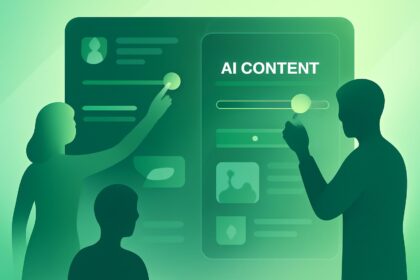The Rise of Generative AI in Cybersecurity
Generative AI is transforming the way Indian businesses approach cyber defense. As a powerful tool, it brings both opportunities and challenges to the cybersecurity landscape. Khushhal Kaushik, a renowned cybersecurity expert, explains how generative AI creates sophisticated phishing schemes and deepfake videos, making it difficult to distinguish between real and fake information. Cybercriminals are leveraging AI to develop polymorphic malware, which changes its code to evade detection systems like firewalls and EDR systems.
Balancing Security and Privacy
The integration of AI in surveillance raises concerns about privacy. Businesses must ensure that AI tools are not used for unauthorized monitoring and that they respect privacy rights. Striking a balance between security and privacy is critical as AI continues to advance.
Leveraging AI for Enhanced Security
AI-driven defenses offer significant advantages. For instance, they analyze user behavior to detect breaches, a task that traditional security tools might miss. Generative AI's role in advanced threat detection allows it to analyze vast data sets to respond to threats in real-time. Companies like TCS have developed AI platforms for enhanced threat detection, showing practical success in improving cybersecurity. The Indian Computer Emergency Response Team (CERT-IN) is also using AI tools to boost national security.
Integrating AI into Cybersecurity Frameworks
To improve cybersecurity measures, generative AI can enhance threat intelligence feeds and improve phishing detection. Integration with Security Information and Event Management (SIEM) systems offers deeper insights into security incidents. AI can also simulate realistic attacks for training, helping improve preparedness.
Essential Skills for Cybersecurity Professionals
As AI evolves, cybersecurity professionals must develop new skills. AI and machine learning are crucial for identifying threats. Professionals should understand data privacy and comply with regulations. Knowledge in cryptography, particularly techniques like homomorphic encryption, is essential to secure AI models. Additionally, understanding cloud security is vital as AI applications often operate in cloud environments.
The Future of AI in India's Cybersecurity
India is investing in AI to enhance cybersecurity through initiatives like the National Cyber Security Policy. While there's a shortage of skilled professionals in AI and cybersecurity, there's a strong focus on skills development. However, the integration of AI tools with existing systems poses challenges, and cybercriminals are also using AI to develop sophisticated attacks. Therefore, ongoing adaptation and education in AI and cybersecurity are crucial for staying ahead of emerging threats.













